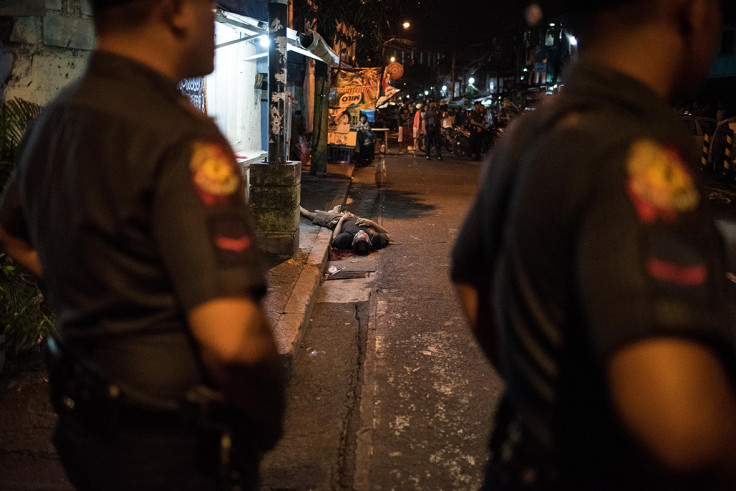What is happening to the victims of Duterte's bloody drug war? Fishermen say 'trash' is being dumped
'We usually throw them out in Manila Bay. Sometimes we put weights on it, so it doesn't float up,' a fisherman said.
If fishermen in the Philippines are to be believed, victims of the country's bloody drug war are considered as "trash" by police as they are being dumped on the sides of the highways or sea shores.
The drug war, initiated by Philippines President Rodrigo Duterte more than a year ago when he took office in June 2016, has been criticised by several human rights groups and concerns have been raised over human rights abuses of the drug convicts or suspects.
However, Duterte has continued the war undeterred and has often threatened to kill or jail those who criticise his action against illegal narcotic sale and consumption. The United Nations had also wanted to initiate an inquiry into alleged extrajudicial killings said to be happening in the name of the drug war, but Duterte snubbed the body and its representatives.
An Al Jazeera report published on Friday (28 July) stated that local fishermen have been dumping the bodies of people killed in the drug war on instructions from the police force.
"Police are the ones coming to my house ordering me to take out the trash," Manuel, a local fisherman told the Doha-based news group. He reportedly claimed that he has personally disposed of 20 bodies.
"We usually throw them out in Manila Bay. Sometimes we put weights on it, so it doesn't float up.
"Once, I saw the body of a friend. I'm scared and wonder if I could be next," the fisherman said, adding that they are unable to trust the authorities "who are playing both sides of the drugs war".

However, when questioned about the same, Philippines police reportedly expressed ignorance about the practice and assured that an investigation will be carried out if the report was found to be true.
"If it's true, we will work on it," police spokesperson Diornardo Carlos told Al Jazeera. "We will not allow any member of the organisation, the police organisation, to continue these wrongdoings.
"There [have been] three focus [points] in the campaign from day one - drugs, criminality and corruption - which we are [tackling] through our internal cleansing process."
Nearly 8,000 people have been killed in the drug war in the past one year, although official statistics differ. In addition to people being killed by police, vigilante killing has led to a huge casualty figure that even the state authorities could not corroborate in these many months. However, police had said in the past that they were investigating the deaths that did not happen in any police operations.
Duterte had initially set a deadline of six months from the start of the operation in June 2016 for rooting out the drug menace from the country. However, the campaign was extended further as authorities believed the problem still persisted in many parts of the country.
The crackdown is still underway and the president recently reiterated his pledge of ending the drug problem in the country.
"Before February 2017, they actually had a higher number, and they decided to lower it April and May which didn't make sense for us," Wilnor Papa, a human rights officer at Amnesty International said.
"Is it because the world is watching, is it because people are saying there are too many deaths? As far as we're concerned it's not just the numbers, but for us, one death is a death too many," he added.
© Copyright IBTimes 2024. All rights reserved.





